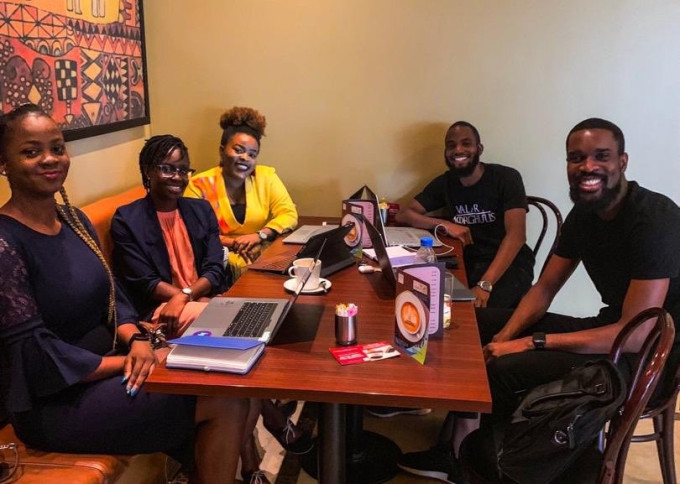There are various paths for those looking to get into venture capital, and for regions like Africa where the concept is only just catching on, you are sure to find people with various backgrounds in the field.
For Dayo Koleowo — partner at early-stage venture capital firm, Microtraction — his journey to becoming a venture capitalist was unplanned.
In 2015, he started ChowHub, a meal discovery and delivery startup, in Abuja, Nigeria’s capital city. Over two years, he experienced all the emotions that an entrepreneur can go through — from the joy of getting paying customers to frustration with the antics of the logistics services which the business depended on.
Like so many other entrepreneurs, he also faced the challenge of raising money to sustain the business’ operations. With little knowledge of how fundraising worked, the writings of Paul Graham, Founder of Y Combinator (YC), and Justin Kan, a former partner at YC and Co-founder of Twitch, became his bible.
As his company died a slow death, Microtraction was getting started. After meeting Yele Bademosi through his co-founder at ChowHub, he jumped at the opportunity to learn on the job. Three weeks after the VC’s official launch, he joined the team on August 10, 2017.
Today, the knowledge he gained from Graham and Kan comes in handy as he runs the day-to-day operations at Microtraction with Chidinma Iwueke, another partner at the firm.
What industries are most attractive to Microtraction?
Koleowo reveals that Microtraction has always been sector-agnostic with the focus on finding founders who are solving problems. However, the firm has a bias for software startups as they believe that software can solve problems across various sectors.
A look at Microtraction’s portfolio reveals a good number of fintech startups; Koleowo explains why.
“There were just a lot of problems around financial services on the continent, and specifically in Nigeria. And thanks to companies like Paystack and Flutterwave, a lot of people built on top of that. And so, you find different founders trying to solve specific niches of the financial services, which I believe will continue because there are still aspects of financial services that need solutions.”
Away from fintech, he reveals that the firm is considering investments in other sectors, including agritech, the gig economy, cryptocurrency, and blockchain.
“We have been thinking of agritech for a while now, but we haven’t made any investments there. It’s definitely on our radar, and we’re beginning to teach ourselves about the industry. I think cryptocurrency and Blockchain are very interesting as well, and I believe it is one of the solutions to the problems that we have in the continent and specifically in Nigeria as well,” he comments.
On failed investments and missed opportunities
With startups popping up faster than investors can write cheques, I asked Koleowo about opportunities Microtraction has missed. His response was interesting.
“As an investor, you can’t invest in everything, and that’s very important to know. Also, there will be misalignment at different times as you speak to different founders. And it is okay to walk away.”
He remarks that while they have not had companies that shut down, they support companies that are going through a hard time.
“As an investor, your job is to be there for the founders every step of the way. When things are rough, that’s when you should be there the most, trying to figure out how to solve the problem. We basically just jump on calls, break down the problem, introduce solutions, and give some advice here and there.”
Considerations when investing in startups

As early-stage investors, funding startups carries considerable risks, mainly because of the scarcity of data from which they can make investment decisions. Still, the firm has some criteria that they watch out for before investing in startups.
For Microtraction, the first quality is how big the addressable market is.
“As VCs, we’re always thinking about scalability, always thinking about how big this opportunity can become. And so when we see companies, we quickly think about the scale at which this company can grow, how big this can become,” he notes.
A second criterion they consider is the founding team. Koleowo reveals that Microtraction likes “teams that are technical because you’re building a technology product. One of the mistakes I made as an entrepreneur was not having a very technical co-founder. That meant we had to outsource most of our technology development and wasted a lot of money and time, and it was difficult to push out something tangible.”
Traction is another thing Microtraction considers. However, it does not mean the startup must have started making revenue.
“We want to see that you are moving things fast. I don’t want to be a partner to someone slow or working part-time,” he adds.
In addition to these, he says that capital-efficient teams are attractive to Microtraction as the firm writes small cheques of about $25,000.
Mistakes founders make
After reviewing hundreds of pitches from founders, Koleowo is uniquely positioned to identify some mistakes that founders make.
With venture capital firms having a specific profile of startups that they invest in, he advises that startups research the VCs they wish to receive investments from to ensure their priorities are aligned.
Keeping investors and shareholders in the loop is something he advises. This ensures that they can help when necessary and guards against creating a false impression that everything is okay with investors.
Although raising funds is vital to keeping a business alive, he points out that it is not the business’ main purpose.
“Fundraising is very distracting, especially when you’re raising large cheques. I think it’s important that if you have two co-founders, for instance, one of them is focused on operations while the other person is handling the fundraising.”Founders looking to get Microtraction on board as investors can visit the firm’s website at www.microtraction.com, where they can apply, with a response coming within seven days. The firm also maintains a presence on Twitter and Instagram.










